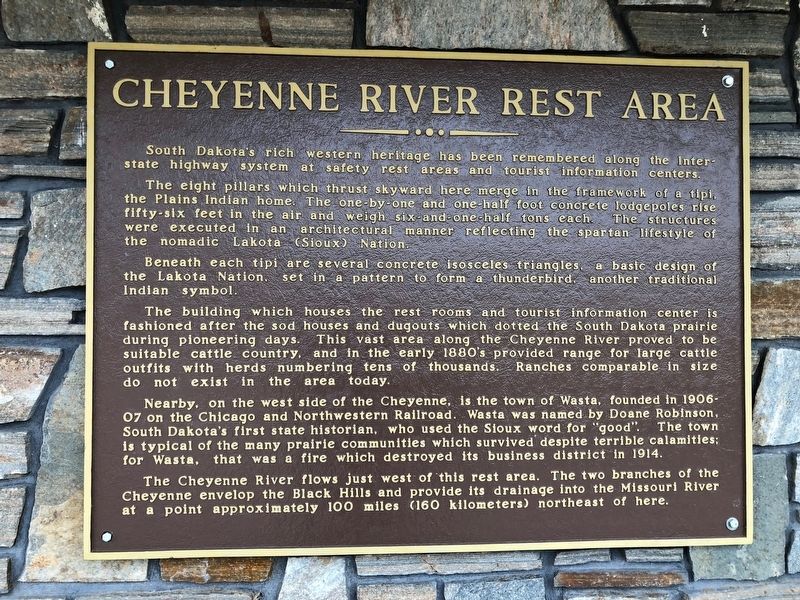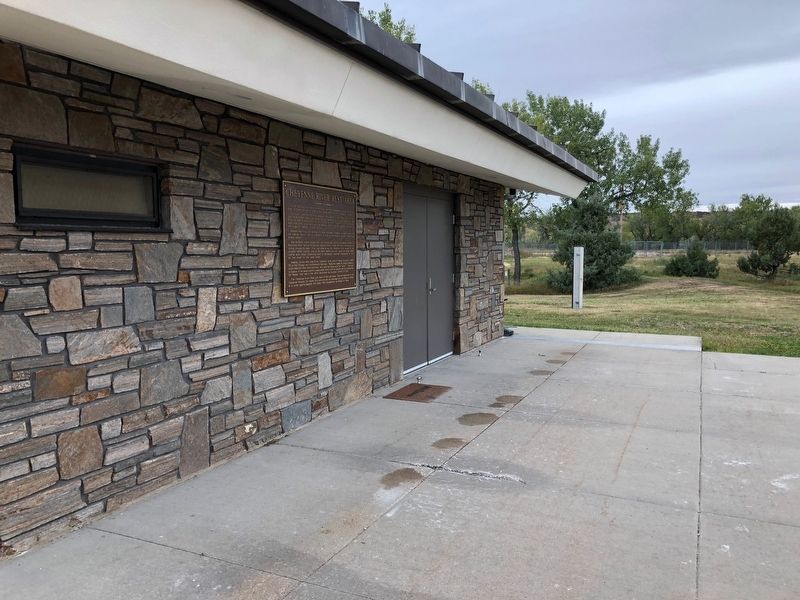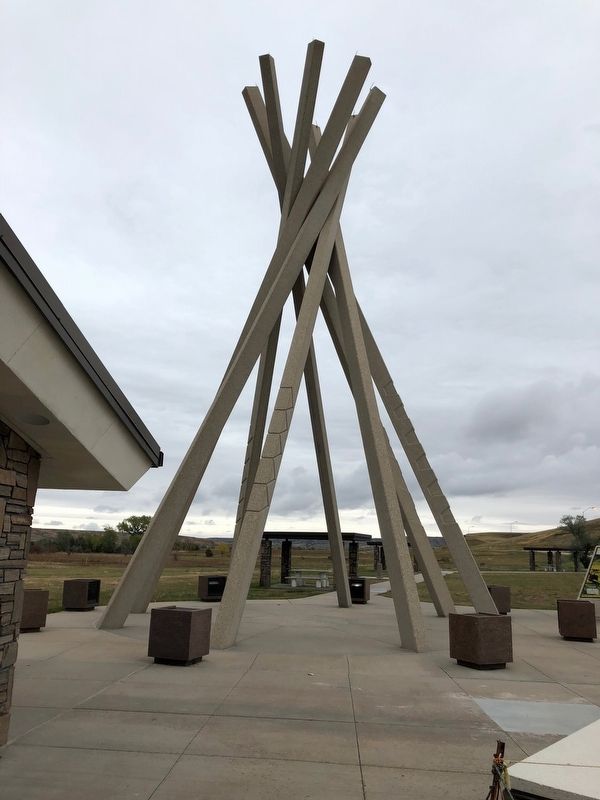Near Wasta in Pennington County, South Dakota — The American Midwest (Upper Plains)
Cheyenne River Rest Area
South Dakota's rich western heritage has been remembered along the Interstate highway system at safety rest areas and tourist information centers.
The eight pillars which thrust skyward here merge in the framework of a tipi, the Plains Indian home. The one-by-one and one-half foot concrete lodge poles rise fifty-six feet in the air and weigh six-and-one-half tons each. The structures were executed in an architectural manner reflecting the spartan lifestyle of the nomadic Lakota (Sioux) Nation.
Beneath each tipi are several concrete isosceles triangles, a basic design of the Lakota Nation, set in a pattern to form a thunderbird, another traditional Indian symbol.
The building which houses the rest rooms and tourist information center is fashioned after the sod houses and dugouts which dotted the South Dakota prairie during pioneering days. This vast area along the Cheyenne River proved to be suitable cattle country, and in the early 1880's provided range for large cattle outfits with herds numbering tens of thousands. Ranches comparable in size do not exist in the area today.
Nearby, on the west side of the Cheyenne, is the town of Wasta, founded in 1906-07 on the Chicago and Northwestern Railroad. Wasta was named by Doane Robinson, South Dakota's first state historian, who used the Sioux word for "good". The town is typical of the many prairie communities which survived despite terrible calamities: for Wasta, that was a fire which destroyed its business district in 1914.
The Cheyenne River flows just west of this rest area. The two branches of the Cheyenne envelop the Black Hills and provide its drainage into the Missouri River at a point approximately 100 miles (160 kilometers) northeast of here. (Marker Number 557.)
Topics and series. This historical marker is listed in these topic lists: Native Americans • Settlements & Settlers. In addition, it is included in the South Dakota State Historical Society Markers series list. A significant historical year for this entry is 1914.
Location. 44° 3.891′ N, 102° 26.082′ W. Marker is near Wasta, South Dakota, in Pennington County. Marker can be reached from Interstate 90 at milepost 100, on the right when traveling west. Marker is at the outside wall of the rest area main building. Touch for map. Marker is in this post office area: Wasta SD 57791, United States of America. Touch for directions.
Other nearby markers. At least 8 other markers are within 17 miles of this marker, measured as the crow flies. Purple Heart Memorial Highway (within shouting distance of this marker); Missouri River (approx. 0.3 miles away); World's Only Corn Palace - Mitchell (approx. 0.3 miles away); a different marker also named Cheyenne River Rest Area (approx. 0.3 miles away); Native American Culture (approx. 0.3 miles away); The Carrol McDonald Post No. 246 (approx. 10.8 miles away); Born of Volcanos (approx. 16.8 miles away); The Big Badlands (approx. 16.8 miles away). Touch for a list and map of all markers in Wasta.
Credits. This page was last revised on June 15, 2022. It was originally submitted on October 1, 2018, by Ruth VanSteenwyk of Aberdeen, South Dakota. This page has been viewed 307 times since then and 36 times this year. Last updated on February 20, 2022, by Craig Doda of Napoleon, Ohio. Photos: 1, 2, 3. submitted on October 1, 2018, by Ruth VanSteenwyk of Aberdeen, South Dakota. • J. Makali Bruton was the editor who published this page.


